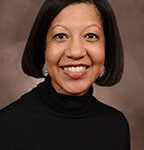It’s the middle of your work day, and, suddenly, you feel as if you’re freezing. After checking your temperature, and you discover that you have a fever. It is likely that you’ve caught the latest bug of the season, or perhaps something worse. Fevers can make people of all ages feel miserable. In most cases, a fever is a sign of an illness, and may warrant further investigation.
Fever Symptoms in Adults

Fevers can range from low to high depending on the type and severity of an illness. They are caused by infections, autoimmune disorders, and some cancers. A temperature above 102 degrees F, or one that lasts more than a few days may be a cause for concern. Read on to learn about adult fevers, and when to see a doctor or seek emergency treatment.
The Definition of a Fever
The average normal core body temperature is 98.6 degrees F. It is maintained by a gland within the brain called the hypothalamus. When an illness affects its ability to regulate body temperature, a fever may develop. Once the temperature increases to 100.4 degrees F, this is considered a fever. Unfortunately, the temperature regulatory function of the hypothalamus decreases with age. As a result, elderly individuals may develop lower than normal body temperatures in response to infections or other illnesses. In adults, oral temperature measurements are more accurate than those taken under the arm, on the forehead, or in the ear. A fever is NOT hyperthermia which occurs in cases of heatstroke.
Fever Symptoms in Adults:
Adult fever symptoms can be quite uncomfortable, and can make you feel worse than the illness itself. Chills, body aches, and fatigue may be associated with a fever, along with other symptoms. The elevated body temperature can also increase your heart and breathing rates.
Some common fever symptoms in adults are:
- Temperature of 100.4 or higher
- Chills
- Fatigue
- Dehydration
- Sleeping poorly
- Restlessness or agitation (more common in the elderly)
- Headache
- Mild aches or muscle pain
- Lightheadedness (usually with high fevers)
- Decreased appetite
When a fever is associated with an infection, symptoms may include:
- Vomiting and/or diarrhea
- Nasal congestion or a runny nose
- Coughing
- Sore throat
- Sinus pressure
If caused by other medical conditions, there may be:
- Fever lasting more than two weeks
- Night sweats
- Weight loss
Home Treatment of Adult Fever:
For mild illnesses associated with fever, there’s not much else to do except lie in bed, and wait to feel better. Adult fever symptoms are most often managed at home without the need for emergency care or a doctor’s intervention. For fevers under 102 degrees F, and lasting fewer than two days, at-home management may be appropriate. It’s important, however, to keep a close eye on elderly adults who may become very ill without developing much of a fever at all.
Because the body responds to fevers by sweating, fluid is lost. The rapid breathing that occurs with high fevers also causes body water losses. These symptoms increase the risk of dehydration. Symptoms of dehydration include dry mouth, sunken eyes, and decreased urine output. To prevent dehydration, it is importation to drink plenty of non-caffeinated fluids throughout the day. In addition, these home remedies may provide some relief:
- Lukewarm baths or showers can lower the body temperature
- Wear breathable clothing and use light-weight blankets
- Drink plenty of fluids, including soups or broths if your appetite has decreased
- Try over-the-counter Tylenol or Motrin for fever reduction and relief from aches or pains
- If too ill to use a shower or tub, try a tepid sponge bath to reduce the temperature
- Rest and try to avoid becoming overly warm
- Eat light meals to ease nausea or stomach upset
It’s important to remember that using heavy blankets to “break” a fever is not recommended. It prolongs or worsens the fever. Shivering is the mechanism in which the body attempts to raise its core temperature. Light-weight clothing, sheets, and blankets can reduce shivering while still providing comfort. This will help allow you to rest easily while recovering from your illness.
When to See the Doctor or Seek Emergency Treatment:
In adults, fevers often resolve on their own. This is the case with the majority of viral infections. If there is another underlying medical condition, appropriate management reduces the fever. For any fever lasting more than few days, or that regularly increases above 102 degrees F, it’s time to call a doctor. Depending on your symptoms, an office visit may be recommended. Fevers that do not respond to attempts to lower it are often a sign of a serious illness. There may be other concerning symptoms such as shortness of breath or lethargy. In such cases, it is best to seek care in a hospital emergency room. Quick intervention can prevent dehydration, sepsis, or other complications.
Influenza, hyperthyroidism, meningitis, and other conditions can cause extremely high fevers which warrant prompt medical attention to ensure the best outcome. Sometimes, fevers develop after having a surgical procedure. It could simply be an inflammatory response to the surgery, or a sign of an infection. In such cases, emergent medical care is necessary to prevent further complications.
Hopefully, these at-home recommendations will reduce your fever, and provide some relief. Remember to watch for signs of dehydration, especially in the elderly, and wear light clothing while feverish. For prolonged or high fevers, seek medical care. Adults who experience fevers above 102 degrees F, or that are associated with a stiff neck and a rash should seek emergency medical treatment.
